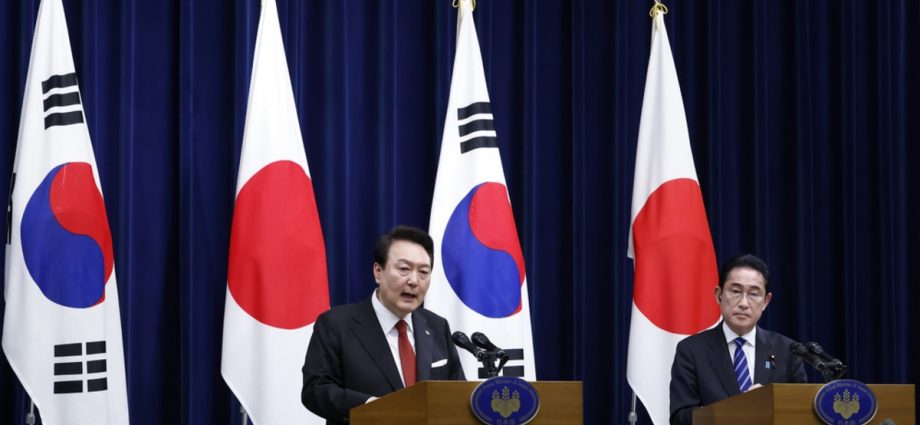
CAN YOON SELL RAPPROCHEMENT TO SOUTH KOREAN PUBLIC?
If the external logic is clear, the domestic logic for Yoon is much tougher. The current deal resolves South Korean demands for compensation for Korean labour impressed by the Japanese Empire. Japan has steadfastly refused these claims, and Yoon basically accepted that refusal, seeking to compensate labourer descendants in other ways.
This arrangement was immediately attacked by the South Korean opposition as a massive betrayal. Yoon is a conservative and hawkish on North Korea and China. The South Korean right has long sought to move the South Korean strategic conversation away from Japanese historical recrimination.
But the South Korean left is deeply committed to regular statements of Japanese contrition. It is also dovish on North Korea. It has long sought an inter-Korean breakthrough so that the two Koreas might focus their ire on Japan.
This has eluded South Korea’s progressive presidents, but South Korean nationalism remains focused on the imperial period. Only 40 per cent of South Koreans – conservative base of Yoon’s coalition – support Yoon’s imperial labour deal. This suggests that whenever progressives retake the presidency, they will undo the current rapprochement.
Indeed, this has happened before in 2015, when South Korean conservative president Park Geun-Hye struck a reparation deal for South Korean women forced to work in Japanese military brothels. This is a deeply emotional issue in South Korea and progressives bitterly attacked the deal. When progressive President Moon took the presidency in 2017, he abandoned Park’s deal.
This is the threat Yoon faces. He must sell his deal not only to his own voters, but to centrists and leftists who want more movement from Japan on historical issues. Yoon needs to make a major effort to convince sceptics through speeches, television appearances and national strategy reevaluations. If not, this labourer deal will fall apart as the 2015 deal did.

